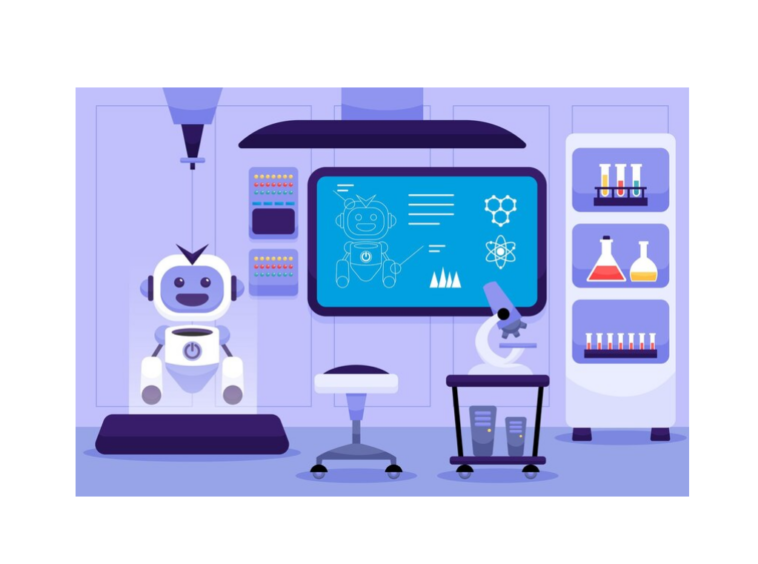The pharmaceutical industry has long been at the forefront of innovation, tackling global health challenges by developing life-saving drugs and vaccines. Yet, this process is often encumbered by immense costs, intricate regulatory landscapes, and protracted research timelines. Enter AI in pharmaceutical industry—the adoption of artificial intelligence to optimize drug discovery, clinical trial processes, and even patient monitoring. Through predictive analytics, machine learning algorithms, and advanced computational methods, AI is helping pharmaceutical companies expedite R&D, reduce costs, and ultimately deliver novel treatments more efficiently.
In the sections below, we delve into how AI is transforming the various stages of drug development, explore real-world applications, and address the challenges and ethical considerations inherent in its adoption.
Introduction: Why AI Matters in Pharma
The pharmaceutical industry faces multiple hurdles:
- High Cost of Drug Discovery: Bringing a new drug to market can cost billions of dollars, with the majority of potential candidates failing in clinical trials.
- Long Research Timelines: It can take a decade or more for a promising compound to progress from the lab bench to regulatory approval.
- Regulatory Complexity: Stringent requirements for safety and efficacy further complicate the development pipeline.
AI offers a radical shift in how researchers approach these challenges. Machine learning algorithms can sift through massive datasets—genomic information, chemical libraries, patient records—to identify patterns and correlations that human analysis might miss. This data-driven intelligence allows for faster, more precise decision-making, cutting down research time and costs. Furthermore, AI can help pharmaceutical companies focus on personalized medicine, tailoring treatments to individual patient profiles.
Transforming Drug Discovery and Development
1. Target Identification and Validation
A key starting point in drug discovery is identifying and validating the biological targets—proteins, genes, or pathways—associated with a particular disease. This step can be akin to finding a needle in a haystack. AI excels here by analyzing complex biological data, including gene expression profiles, protein structures, and pathway interactions, to pinpoint potential targets more quickly.
- Example: Deep learning models can analyze genomic datasets to find patterns indicating which genes are overexpressed in a certain cancer type. These models then recommend specific genes for further investigation as drug targets.
2. Lead Compound Selection
Once a target is identified, pharmaceutical researchers must find molecular compounds that can bind effectively to that target. Historically, screening large compound libraries has been time-consuming. AI-driven virtual screening tools can evaluate millions of molecules digitally, shortlisting those with the highest probability of success.
- Example: Generative AI models can design novel compounds from scratch. By learning from existing chemical structures and known efficacy data, these models suggest new chemical entities with desired properties—like optimal binding affinity or reduced toxicity.
3. Preclinical Testing
Before human trials, potential drugs undergo preclinical testing in cell cultures and animal models. AI can forecast toxicological outcomes and pharmacokinetics (how a drug moves within the body), guiding researchers to the most promising candidates for further development.
- Example: Machine learning algorithms trained on historical toxicity data can predict adverse effects, reducing reliance on animal testing and streamlining preclinical work.
The Role of AI in Clinical Trials
Clinical trials remain one of the most resource-intensive stages of drug development. AI is reshaping this phase in several impactful ways:
1. Patient Recruitment
Many trials struggle to find suitable participants within the needed timeframe. AI platforms can scan electronic health records (EHRs), lab results, and even social media to identify qualified patients who meet eligibility criteria. By matching patient profiles with trial protocols, AI boosts enrollment speed and accuracy.
- Example: An oncology trial could use AI to identify breast cancer patients with specific genetic mutations. The software analyzes hospital databases and flags potential recruits, expediting patient referrals.
2. Adaptive Trial Design
Adaptive trials involve periodically reviewing data and adjusting the study design accordingly. AI provides real-time insights into how a new treatment is performing, whether certain patient subgroups benefit more, or if dosage adjustments are necessary. By enabling data-driven modifications during the trial, AI reduces waste and improves safety.
- Example: A clinical trial for a novel heart medication might use AI to detect that patients over 65 show better response rates. Investigators could then adapt enrollment criteria to focus on older populations, enhancing the trial’s success probability.
3. Monitoring and Compliance
Non-compliance among trial participants can muddy results. AI-powered wearables and mobile apps allow real-time monitoring of medication intake and vital signs. If a patient shows concerning symptoms or deviates from the treatment protocol, the software promptly alerts the trial administrators, leading to timely interventions.
- Example: Patients in a diabetes trial might wear continuous glucose monitors that automatically relay data to an AI platform. Abnormal fluctuations trigger immediate alerts, ensuring swift adjustments in insulin dosage or dietary guidance.
Benefits and Opportunities
-
Reduced Costs and Timelines
AI-driven optimization in drug discovery and clinical trials can significantly shorten development cycles. This translates into billions of dollars in potential savings and more rapid availability of treatments for patients. -
Personalized Medicine
Machine learning enables segmenting patient populations more accurately, paving the way for treatments tailored to individual genetic and lifestyle profiles. -
Higher Success Rates
By focusing on the most promising therapeutic pathways and patient groups, AI reduces the risk of late-stage trial failures, thus increasing overall success rates. -
Improved Patient Outcomes
Faster drug development cycles and better-targeted therapies ultimately benefit patients, offering innovative treatments with fewer side effects. -
Global Collaboration
Digital platforms powered by AI facilitate remote data sharing and real-time communication among international teams, fostering collaboration that transcends geographical barriers.
Conclusion
The infusion of AI in pharmaceutical industry marks a watershed moment for drug discovery, clinical trials, and post-market surveillance. By harnessing machine learning, natural language processing, and predictive analytics, pharmaceutical companies can expedite research timelines, minimize costly failures, and deliver breakthrough therapies faster. While challenges persist—ranging from regulatory ambiguities to data privacy concerns—the potential rewards in terms of patient outcomes and global health improvements are significant.
This post was created with our nice and easy submission form. Create your post!





